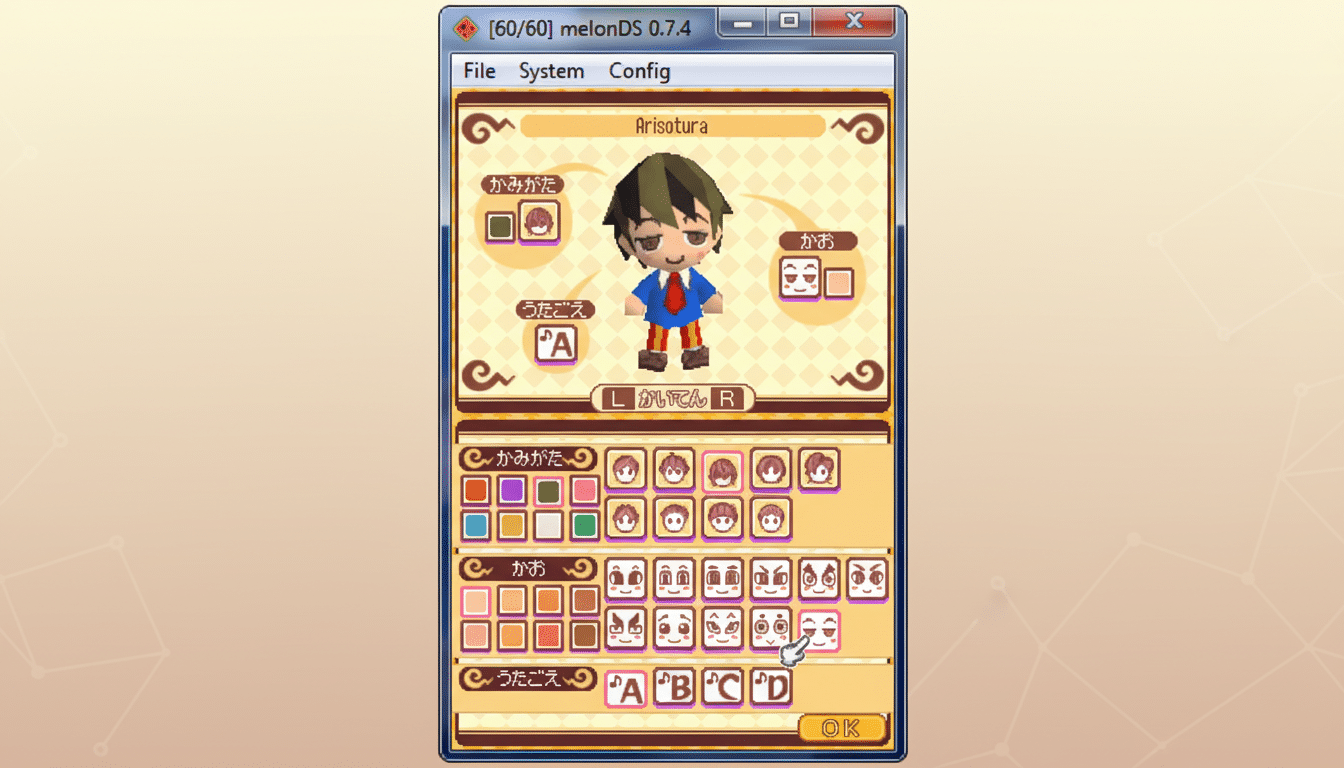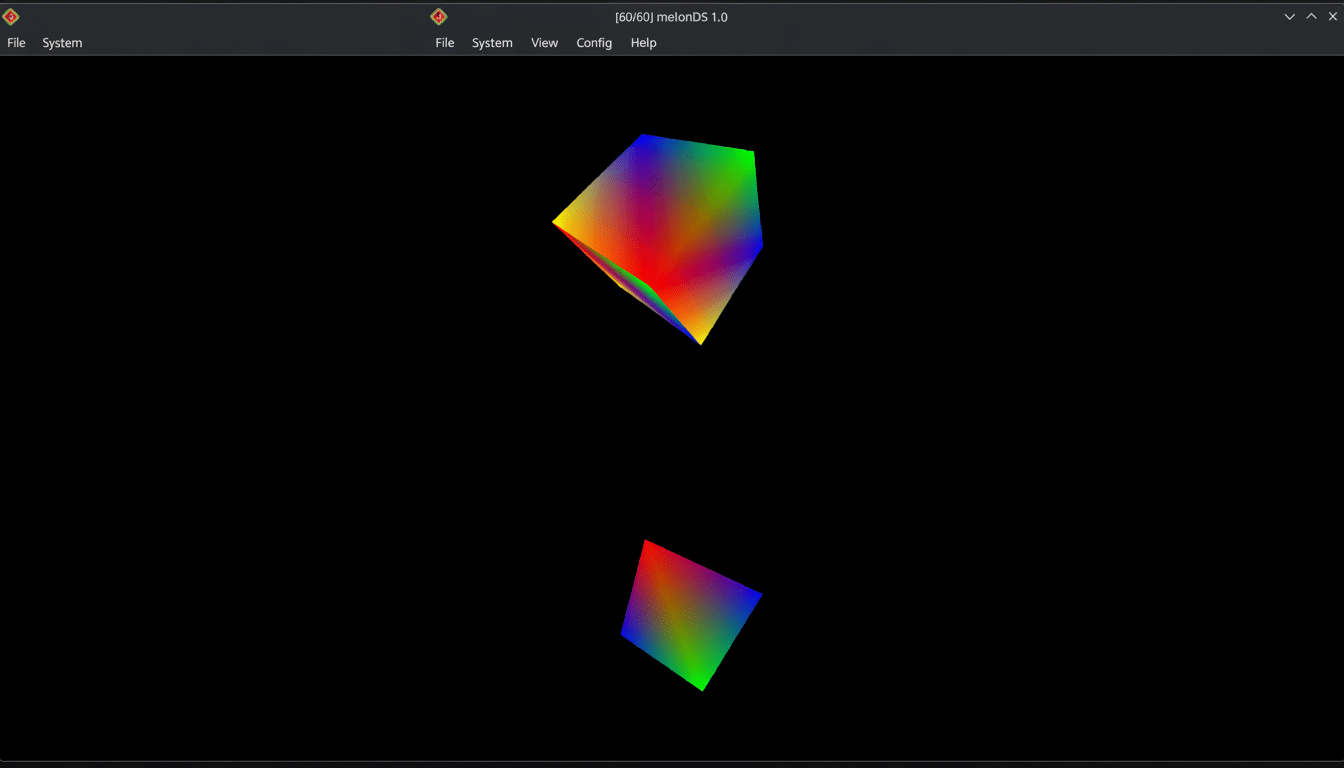MelonDS, a popular open-source Nintendo DS emulator, has released a new update, and it’s big news for those of us who like our HD emulation. High-level emulation of the DSi’s digital signal processor, handling for microphone input, and higher-quality audio bring solutions to past performance drops and sound problems that have plagued some DSi-mode software. It also brings a built-in cheat database and corrects visual glitches at higher resolutions. Desktop builds are available for Windows, macOS, and Linux; however, the unofficial Android port is still currently lagging behind.
Differences With DSi DSP High-Level Emulation
Centre stage is high-level emulation (HLE) of the DSi’s DSP. Formerly, the games which relied on DSP audio processing would tank to single-digit frame rates in some of the more chaotic scenes. MelonDS 1.1 veers from this and, instead of emulating DSP usage on a lower level, it cuts down most overhead, which brings many DSi-mode titles back to full speed with cleaner and more constant audio.

Why that matters: the DSi had more advanced audio capabilities and system services compared to the original DS, and some games rely on those features. HLE allows the emulator to skip over complicated audio routines that would otherwise slow down CPU emulation. This increases responsiveness, and with HLE enabled you’ll get rid of crackle and desync that appeared when HLE was disabled, as many users can testify. In layman’s terms, expect to hear better mixing and no stutters in DSiWare and enhanced-mode titles.
Better Audio and Mic Support for More Games
It’s not just DSP that MelonDS 1.1 brings to the table, though. The update enhances audio quality across the board and offers more mic input options. That unlocks a seamless experience among games that use voice or breath as input — think series such as Nintendogs, Zelda entries with mic puzzles, and creative apps that record sounds. Good mic handling is another win for preservation, as several DSi-era experiences were designed with it in mind.
The high-resolution mode of the emulator also has a bit more stability in general. The option to upscale DS or DSi graphics is a favourite among PC users, albeit with some weird artefacts for certain 2D/3D combinations in the past. The new build fixes those glitches, so high-res play is more reliable and not marred by the distracting shimmer or broken edges seen in previous releases.
Cheat Database and Usability Enhancements in Version 1.1
Version 1.1 includes cheat database support to save a step and make life easier, because you’d have to manually enter the code or use external tools in older versions. Cheat code formats (like Action Replay–style entries) can now be controlled within the emulator itself, which is convenient for testing or simply making content more accessible and easier to find. Along with a round of bug fixes, it’s the kind of quality-of-life upgrade that makes MelonDS friendlier for new users and power users alike.

Why DSi Emulation Has Proven Tricky Over the Years
It’s one thing to emulate the original DS; it’s another thing to emulate a DSi. Over and above additional RAM and a possibly faster CPU when in DSi mode, Nintendo introduced further system software complexity and its own security protocol with the launch of DSiWare. Those additions further muddy the timing, audio, and I/O waters, with DSP behaviour in particular difficult to replicate cycle by cycle. That’s why making the move to high-level DSP emulation is such a big unlock for performance.
The stakes are higher than convenience. According to company financials, the Nintendo DS family has sold more than 150 million units worldwide, and the catalogue of the DSi era — especially DSiWare — has a number of experimental creations that never made it into physical release. Groups such as the Video Game History Foundation have argued for years that functioning, faithful emulators are a necessary component of software preservation. Enhancements like these render more of that library playable the way it was always meant to be played.
Availability and Status of the Android Port
Notifications related to 1.1 were made around community channels by the MelonDS team, stating that Windows, macOS, and Linux binaries are available as of now. If you’re on desktop, upgrade now and start testing DSi titles and high-resolution rendering enhancements today. The unofficial Android port, however, has not merged the new code. For mobile users, it will be a bit longer until the maintainer adds these changes and releases a new build.
On Android, the impact of HLE DSP and the audio overhaul should be even greater, where less CPU headroom exists and small wastage can manifest as very large frame drops. At least for now, desktop is still the best way to get a sense of the new DSi compatibility and performance profile.
The Bottom Line: What MelonDS 1.1 Delivers for DSi Emulation
MelonDS 1.1 is a substantial update that, at long last, lets many DSi games feel “right” on an emulator: smooth, responsive, and sonically clean. Factor in cheat database support and an array of graphical fixes along the way, and it’s clear that the project is nipping at a bit more than just the usual DS baseline toward a more true-to-life DSi-era feel. For preservationists as well as players, this is the one to see.

